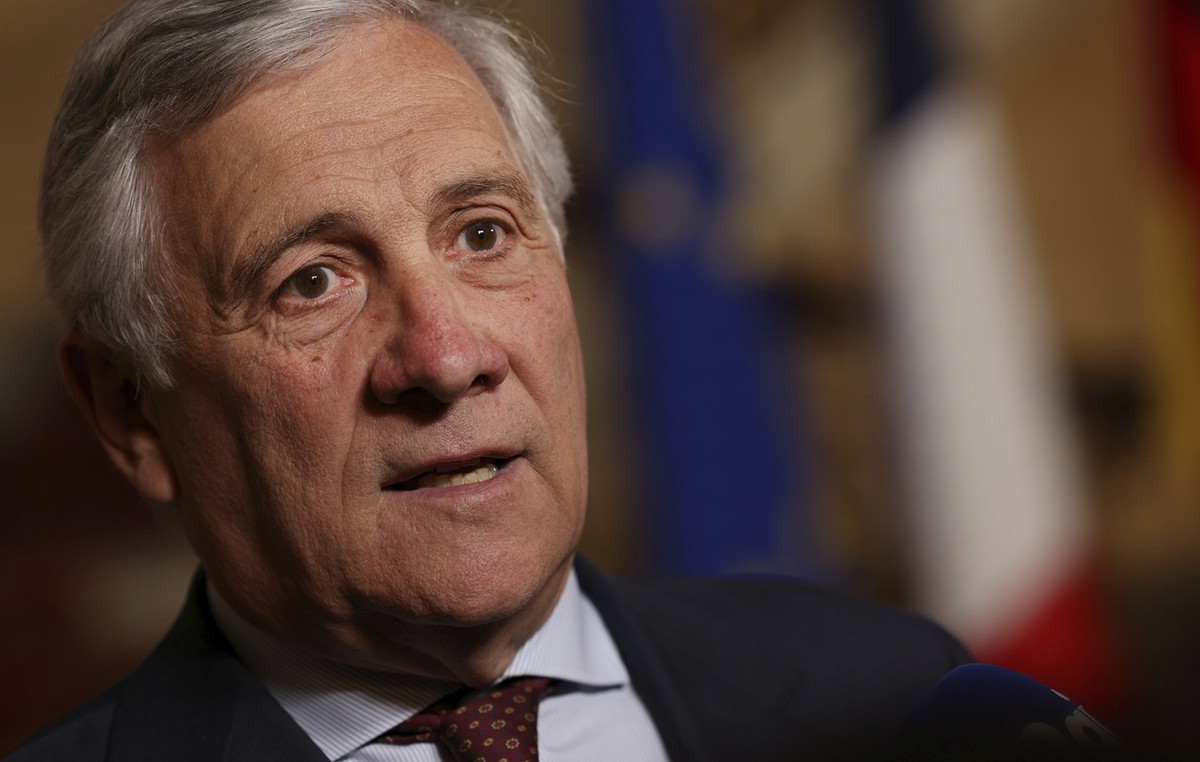The new legislative framework for Mufties was presented to the Parliament by the Minister of Education and Religious Affairs, Niki Kerameos, who emphasized that it is a modern regime of Mufties, a framework that results from the conclusion of the Inter-Party Committee of the Parliament, which takes into account constitutional imperatives , our country’s international obligations, the Treaty of Lausanne, the European Convention on Human Rights, the jurisprudence of the Council of State and the European Court of Human Rights.
As he pointed out, these are regulations that provide a complete framework for the organization and operation of the mufti, the emphasis is on the institution of the mufti, so we have a shift from the person of the mufti to the institution of the mufti. It expressly provides for the triple status of the mufti in our country: religious minister, head of public service and official with jurisdictional powers and also provides for the protection at the individual level of the prestige of the muftis and also contains important innovations regarding the process of selecting muftis for the widest possible acceptance of them as persons of increased prestige with special ties to the citizens they are called to serve.
The bill is divided into two parts. The first part concerns the organization and functioning of the institution of muftis, while the second part concerns the mufti.
The minister stated that in the first part, i.e. in articles 142 to 147, no disagreement has been expressed by any party, and informed that based on the proposals from PASOK-Movement for Change, MeRA25 and Mufti Komotini, the relevant legislative bills will be submitted improvements, while other changes will now be examined at the level of the regulatory framework – because that is where they fall – in the context of drafting and the presidential decree on the organization, operation and structure of muftis.
With reference to the second part, in which proposals were made by SYRIZA, PASOK-Movement of Change, MERA25, the Mufti of Didymoteicho, Komotini and the president of the Association of Hierarchs of the Islamic Religion, Ms. Kerameos said that the muftis’ proposals have been accepted and these are incorporated into legislative improvements.
Regarding the changes proposed by SYRIZA and PASOK-Movement for Change in article 165, so that the qualifications for the mufti candidate do not increase, but remain those mentioned in the 1991 law, he emphasized that “as a government we consider it reasonable that someone before to become a mufti, he must have been an imam and this seems to be the opinion of the muftis, however in the spirit of convergence, we are adding a transitional provision, so that for the first five years from the implementation of the law, the qualifications it provided for will essentially remain in force the 1991 law, so as not to surprise anyone, and I think this brings us even closer to the individual proposals that were made.
Response to SYRIZA proposals
Mrs. Kerameos informed that SYRIZA has requested changes and in article 161 in particular, the advisory committee to propose three or four persons to the minister of education, among whom the minister should choose and not only examine the formal qualifications, but issue an evaluation judgment on the adequacy of the candidates and others said that the advisory committee must nominate three, four persons, so that we do not find ourselves before the case of a single candidate who will force the respective minister to appoint that particular person as mufti. He replied to them: “It is a fact that the spirit of the bill is liberal. We do not want to limit or distort the judgment of the advisory committee by forcing it to propose a certain number of persons. On the one hand, we cannot know in advance the total number of candidates for the post of mufti. Well we cannot say a minimum number of nominees for the post. Can the candidates be two. So what is the point of the law obliging the advisory committee to nominate at least three persons? Can the candidates be ten and the law says that they must nominate three persons to the minister. But the advisory committee can judge that only two out of the ten are sufficient. Then we will have the paradox that the advisory committee is obliged by law to nominate candidates who do not deems adequate. We want the advisory committee to judge the adequacy of these candidates. That we cannot know we are in advance as a Legislature as to how many they may be. And I want to be clear. The philosophy of the provision is to transfer the responsibility of evaluating the candidates to the advisory committee, so that the Muslims themselves without any state interference can decide who or who are adequate.”
The minister explained that the committee evaluates each candidate as to whether he is sufficient or not, it does not look only at the formal qualifications, although the provisions clearly pass the responsibility to the committee for examining both the formal qualifications and the obstacles or incompatibilities and specifically mentioned that this has been done completely consciously, so that there is no state intervention, so that the state is not involved. The task of the Committee is therefore to propose to the minister, without evaluating among themselves the candidates it considers adequate.
Pointing to the statements of the SYRIZA member of parliament, George Katrougalou, that it is not necessary and appropriate for the candidates to be ranked in a hierarchical order of evaluation, Mrs. Kerameos said that she does not know if she is expressing her party, but she does not consider that there is a substantial disagreement as to the committee’s work. “The disagreement remains only in that we consider that it is neither technically feasible nor appropriate for the law to compel the advisory committee to select a certain number of people.” Addressing Sokratis Famellos regarding the phrase “without comparative evaluation”, Ms. Kerameos said that if it creates any confusion regarding the work of the advisory committee, it is possible to either replace it with the phrase “without hierarchical ranking between them” or to delete it .
Regarding the changes requested by SYRIZA, PASOK-Movement for Change and MeRA25 in article 158, which concerns the advisory committee (PASOK-Movement for Change and MeRA25 raised the issue of women’s participation), Ms. Kerameos announced that the proposal is accepted and the following sentence will be added: “For the composition of the advisory committee, the principle of the largest possible participation of women is observed.” I believe that this adds another field of convergence with both MeRA25 and PASOK.
Also, in relation to the two issues raised by SYRIZA, firstly, for the expansion of the advisory committee with a larger number of imams and, secondly, that these imams are not registered in the Register of Religious Ministers of the 2014 law, the Minister of Education and Religious Affairs reminded that the mandatory inclusion of imams in the Registry was made mandatory by the SYRIZA law, 4559/2018 and – as he added – this was done very correctly, because the main function of the Registry is to act as an authoritative source for the registries, in order to register religious marriages performed by legitimate religious officials. He stated, however, that the “thirty-three” number of the advisory committee cannot be increased, primarily because it has a symbolic meaning for Muslims, as the president of the Rabbinate Association himself explained to the committee, but also because the advisory committee should have a number of members, which technically allows the exchange of views, discussion and expression of opinion.
He further explained that the advisory committee is a religious committee of persons with certain qualities who are presumed to have the knowledge to judge who is adequate for the position of mufti. However, this knowledge is about the Koran, the Muslim holy law, the Muslim tradition, the general theological training and the morals of the candidates.
As far as the Koran, the Muslim holy law and the Muslim tradition are concerned, the most presumptively qualified to judge the candidate are the lecturers in the direction of Muslim Studies at the Aristotle University of Thessaloniki and the Muslim seminaries, as well as the eminent theologians. All together they – all together – are twelve. The further reduction in their number therefore jeopardizes the fulfillment of the condition of the “hierarchical clause” of the muftis of Thrace issued in 2016, that there must be a discussion between the scholars of Islam and the Minister of Education about the candidate mufti. If, for the sake of a national consensus, the number of imams should be increased, we could consider this as well if SYRIZA submits a specific proposal for the composition of the committee.
However, Mrs. Kerameos made it clear that there is one point where there is no room for change, “it is purely a national matter and this must be absolutely clear to everyone” and this concerns article 158 which states in paragraph 4 that the observer mufti draws up the list of imams of the relevant mufti, if the registration of the imams in the Register of Religious Ministers has not been completed.
Article 151 stipulates that a mufti registers the religious ministers of the Muslim minority of Thrace in the Register of Religious Ministers. “Consequently, the issue raised by SYRIZA that those who are not registered in the Register, in which it made registration mandatory, can also participate as candidates for the advisory committee, has already been resolved. There is no need for another register, since its compilation list is provided for in article 158. What then is our difference? We propose that the listing is done by the mufti. SYRIZA wants the mufti to be bypassed. For obvious reasons – I need not elaborate – it is very important, in my opinion us, not to bypass the mufti. I believe that SYRIZA’s proposal starts from good intentions and aims for the best possible result for the country and Thrace. After all, Mr. Katrougalos – I say this because he made specific statements – made it clear that he is against any interference by Turkey in the internal affairs of Thrace and any attempt to organize a parallel process for the election of a mufti. But let us be clear clean. Bypassing the mufti constitutes an annulment of the mufti and, in fact, an annulment by the state that has recognized him,” said the minister.
Finally, Mrs. Kerameos and with the aim of “giving the message of national understanding and democratic unity” invited all the wings of the Parliament to vote in favor of articles 142 to 167, setting aside individual minor differences and expressed her satisfaction “that almost all parties of the Parliament share, from what it seems, the particular national imperative of this legislative initiative”. “If SYRIZA insists on the different choice of strategy, at least let it vote in favor of all the other articles in which it has not expressed disagreement – note, several of them are provisions of SYRIZA, which SYRIZA legislated when it was in government – and then let it vote against only article 158 , where, it seems, there is no common ground between SYRIZA and all the other parties”, concluded the Minister of Education.
The amendment
Elaborating on the Ministry of Education’s amendment, which is incorporated into the environmental multi-bill, Ms Kerameos said it included provisions for the selection of head teachers to speed up the judgments of school principals and some legal and technical improvements to the Universities Act arising from the Plenary discussion and some arrangements regarding the use of classrooms in schools.
Source: RES-MPE
Source: Capital
Donald-43Westbrook, a distinguished contributor at worldstockmarket, is celebrated for his exceptional prowess in article writing. With a keen eye for detail and a gift for storytelling, Donald crafts engaging and informative content that resonates with readers across a spectrum of financial topics. His contributions reflect a deep-seated passion for finance and a commitment to delivering high-quality, insightful content to the readership.







